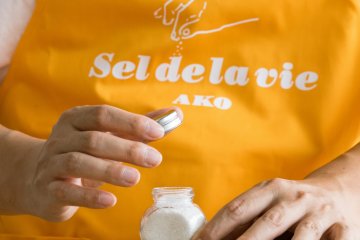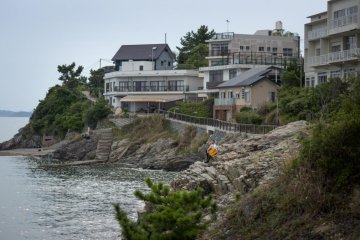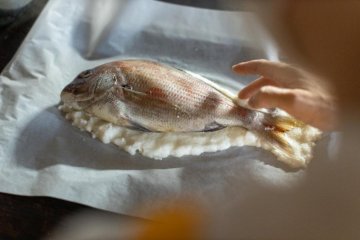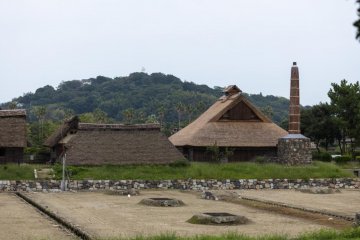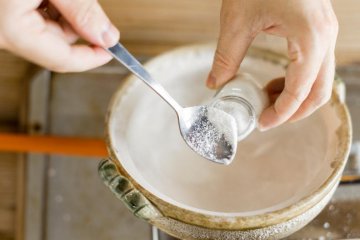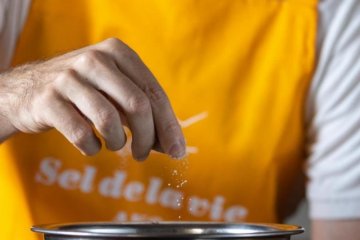One of the highlights of any visit to Ako is sampling the abundance of fresh, locally grown produce and excellent seafood which the city is famous for. The mild climate and fertile soil create a wonderful selection of fruits and vegetables, and the shallow waters of the Seto Inland Sea are known for their oysters and other excellent seafood.
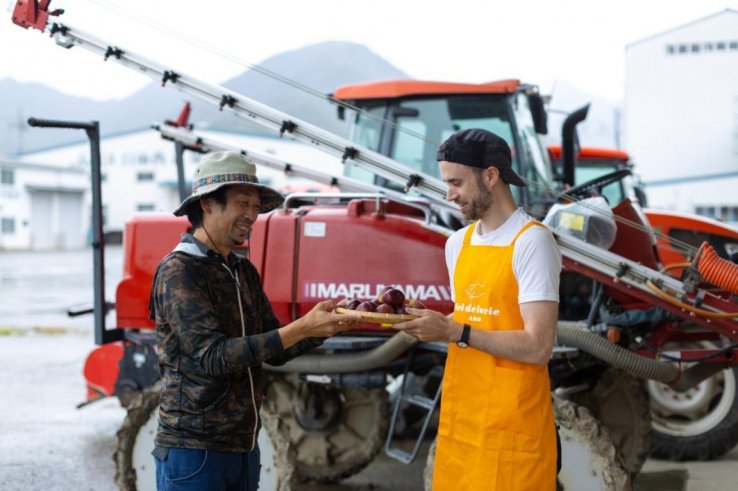

But in Ako, there is a belief that food is more than simple sustenance, and so a farm-to-table tour is the best way to get a true understanding of the region’s food history and culture all while having fun and trying some amazing local dishes along the way!

Tours start with a delve into the history of Ako’s most famous and unique industry, salt-making. Large salt-producing structures called enden were constructed on the vast, flat coastal plains. At the Hyogo Ako Seaside Park (a former enden site), you can see authentic reconstructions of the buildings, tidal salterns, and processes used to make salt. While there, you’ll have the chance to participate in a fun and exciting salt-making experience, where you can enjoy making your own Ako salt using a traditional method - you’ll be able to use this handmade salt in the cooking part of the tour later too. It also makes a great souvenir!

After the salt-making experience, it’s off to the farm to gather some local produce for today’s meal. You will have the chance to see a real working Japanese farm, enjoy chatting with the local farmers, and harvest whatever fruits and vegetables are in season.

But don’t worry if the weather doesn’t cooperate; if it’s too wet for farming then you can instead spend a pleasant time visiting local wholesalers to pick up the fresh ingredients you need for cooking. There is also a chance to visit a traditional fish market where you can mingle with the locals and bag the freshest catch of the day.

Once all the ingredients have been obtained, it’s time to do some cooking! At a private cooking studio in Ako (locations include a sake brewery or even cooking outdoors among the fields and vegetable patches if the weather permits), an expert chef will teach you all about the day’s ingredients and how to use them, and then guide you step-by-step through the fascinating preparation and cooking process. Enjoy slicing vegetables, preparing salt-baked tai (sea bream), cooking tempura, and making rice balls—seasoned with your very own handmade Ako salt, of course.

You can also try your hand at making traditional Japanese sweets using mouth-watering delicacies such as dango (rice-flour balls) and anko (sweet red bean paste). Presentation is everything in Japanese cooking, and so you will learn how to decorate the dishes and set the table so that it looks fit for a high-end restaurant—don’t forget to take pictures when it’s done!

After all that hard work, it is finally time to eat! Everyone can settle down around the table and enjoy the delicious and authentic dishes you cooked together, all incorporating the unique tastes of Ako. There is no better way to get to the heart of a region than through its food, and hopefully, by participating in a farm-to-table tour you will develop a deeper understanding of the region, have fun learning new practical skills, and make fantastic memories that will last a lifetime. Plus, you will have a pot of your own handmade Ako salt to take home for your own future cooking adventures!

Farm-to-table tours in Ako are truly the best way to understand and enjoy Japan’s local flavors.




